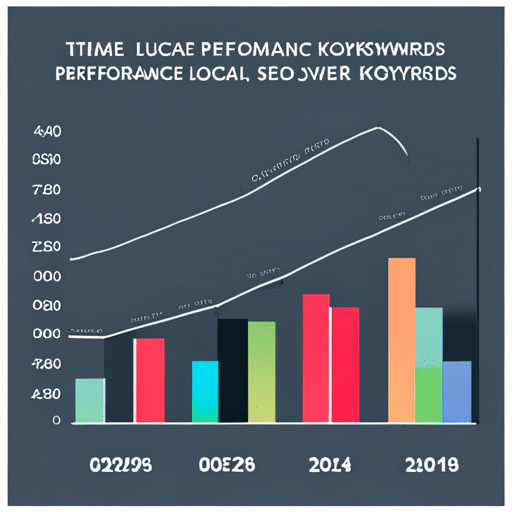Are you tired of struggling to get your local business noticed online? Look no further! In this ultimate guide, we will show you the secrets to keyword research for local SEO success.
By utilizing powerful tools and techniques, understanding local search trends and user intent, and optimizing keywords for ranking factors, you’ll be able to skyrocket your website’s visibility in no time.
Get ready to track and analyze keyword performance like a pro, ensuring your local SEO efforts pay off big time.
Key Takeaways
– Keyword research is essential for businesses targeting specific geographical areas in order to optimize their website and content for relevant local search results.
– Utilizing tools like Google Keyword Planner or SEMrush, as well as competitive analysis, can help identify effective and relevant keywords to drive traffic and improve visibility.
– Understanding local search trends and user intent is crucial for tailoring content to the specific needs of the target audience and enhancing website visibility in search engine results.
– Optimizing keywords for local SEO ranking factors involves incorporating location-specific keywords, conducting thorough research on popular local search terms, and creating location-specific landing pages with targeted keywords and useful information.
Importance of Keyword Research for Local SEO

You need to understand the importance of keyword research for local SEO. Local SEO strategies are crucial for businesses that want to attract customers in their specific geographical area. By targeting local keywords, you can optimize your website and content to appear in relevant search results when potential customers are looking for products or services in their locality.
Keyword research allows you to identify the most effective and relevant keywords that will drive traffic to your website and improve your visibility in local searches.
When conducting keyword research for local SEO, it is important to consider factors such as search volume, competition level, and relevance to your business. By analyzing data on popular search terms related to your industry and location, you can uncover valuable insights that will inform your content creation and optimization strategy. Additionally, understanding the specific language and terminology used by people in your target market can help you tailor your messaging to resonate with them.
Tools and Techniques for Effective Keyword Research

To effectively conduct keyword research for local SEO, it’s important to utilize various tools and techniques. Here are some strategies you can implement:
– Competitive analysis: Identifying local competitors and their keyword strategies. Analyze competitor websites, blogs, and social media profiles to understand the keywords they are targeting. Look for gaps in their strategy that you can capitalize on by targeting similar keywords with better content.
– Long tail keywords: Leveraging specific, localized phrases for targeted local SEO. Use keyword research tools like Google Keyword Planner or SEMrush to find long tail keywords relevant to your business and location. Incorporate these long tail keywords naturally into your website content, blog posts, meta tags, and URLs.
Understanding Local Search Trends and User Intent

Understanding local search trends and user intent can greatly enhance your website’s visibility in search engine results. By analyzing local search behavior and targeting local keywords, you can tailor your content to meet the specific needs of your target audience.
Local search behavior refers to the way people search for products or services within their immediate vicinity. This includes using location-specific keywords such as ‘near me’ or mentioning a particular city or neighborhood. By incorporating these keywords into your website’s content, you increase the chances of appearing in relevant local searches.
Additionally, understanding user intent is crucial for optimizing your website for local SEO success. User intent refers to what a person is looking for when they conduct a search query. It could be informational, navigational, or transactional. By aligning your content with user intent, you can provide valuable information that matches their needs and ultimately improve your website’s visibility in search engine results pages (SERPs).
Optimizing Keywords for Local SEO Ranking Factors

By incorporating location-specific keywords into your website’s content, you can improve its visibility in local search results. This is crucial for businesses that rely on local customers and want to rank higher in local SEO.
Here are two strategies to help you optimize your keywords for local SEO ranking factors:
1. Local keyword targeting strategies:
– Conduct thorough research to understand the specific keywords that potential customers in your area are using.
– Use tools like Google Trends or Keyword Planner to identify popular local search terms.
2. Leveraging location-specific keywords for local SEO:
– Include city names, neighborhood names, or other relevant geographical information in your website’s content and meta tags.
– Create location-specific landing pages with targeted keywords and useful information about the specific area.
Tracking and Analyzing Keyword Performance for Local SEO Success

Tracking and analyzing keyword performance is essential for gauging the effectiveness of your local SEO efforts. To ensure your website is ranking well in local search results, it’s crucial to regularly monitor the performance of your chosen keywords.
By tracking metrics such as organic search traffic, click-through rates, and conversion rates, you can identify which keywords are driving the most valuable traffic to your site.
Additionally, competitor analysis plays a vital role in understanding how your competitors are performing in relation to specific keywords. By analyzing their strategies and rankings, you can gain valuable insights into areas where you may need to improve or capitalize on opportunities.
Armed with this data-driven information, you can make strategic adjustments to optimize your local SEO efforts and stay ahead of the competition.

